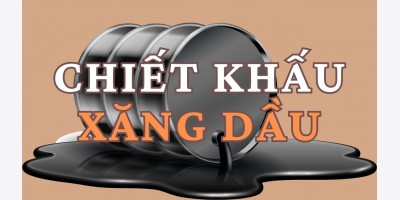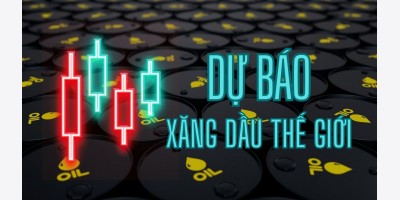Giá dầu tạm thá»i ổn định trên mức 100 USD/thùng
Sau khi hồi trở lại trên mức 100 USD/thùng, giá dầu thô trong phiên châu Á sáng nay tạm thá»i vẫn chÆ°a có biến Ä‘á»™ng nào Ä‘áng kể.
TrÆ°á»›c Ä‘ó, thị trÆ°á»ng năng lượng khá căng thẳng do lo ngại vá» nhu cầu năng lượng ở quốc gia tiêu thụ đứng thứ ba trên thế giá»›i sẽ giảm Ä‘i sau khi tráºn Ä‘á»™ng đất kinh hoàng, kèm theo sóng thần Ä‘ã làm rung chuyển nÆ°á»›c Nháºt.
Tuy nhiên, giá dầu Ä‘ã hồi lại những giá» cuối phiên Mỹ tối qua do các nhà đầu tÆ° chuyển từ lo ngại giảm nhu cầu từ Nháºt sang lo ngại vấn Ä‘á» nguồn cung “vàng Ä‘en” ở Trung Äông sẽ bị ảnh hưởng do Ả Ráºp Saudi Ä‘ã Ä‘Æ°a quân sang Bahrain theo yêu cầu há»— trợ của nÆ°á»›c này. Trong khi Ä‘ó sá»± bất ổn chính trị ở các nÆ°á»›c nhÆ° Yemen, Oman và Iran vẫn Ä‘ang diá»…n ra, ná»™i chiến ngày má»™t ác liệt hÆ¡n tại Libya sau khi chính phủ dùng đến lá»±c lượng không quân để tấn công lại phe phản đối tại thành phố Ajdabiya.
Ben Westmore, nhà kinh tế năng lượng và khoáng sản của Ngân hàng National Australia Bank Ltd ở Melbourne nói rằng các sá»± kiện xảy ra tại Trung Äông vẫn là yếu tố quan trá»ng chi phối thị trÆ°á»ng dầu thô.
Vào lúc 8h48 sáng nay (giá» Việt Nam), giá dầu thô Ä‘ang ở mức 100,63 USD/thùng, giảm hÆ¡n 1 USD so vá»›i cuối phiên Mỹ tối qua ở mức 101,68 USD/thùng.
Giá dầu thô Brent giao kỳ hạn tháng 04 Ä‘óng cá»a phiên giao dịch hôm qua chốt tại mức 113,53 USD/thùng, giảm 14 cent so vá»›i Ä‘óng cá»a phiên liá»n trÆ°á»›c.
Theo số liệu thống kê của CÆ¡ quan năng lượng quốc tế, tiêu thụ dầu của Nháºt trong năm 2010 đạt bình quân 4,42 triệu thùng/ngày. Trong khi tiêu thụ của Trung Quốc là 9,39 triệu thùng và Mỹ là 19,25 triệu thùng.
Oil prices stabilize after Japan quake disaster
Crude oil prices steadied Monday in New York from earlier losses as the market gauged the impact of Japan's earthquake disaster on demand and eyed continuing unrest in the Arab world.
Oil prices were under pressure from the prospect of lower demand in quake-devastated Japan, the world's third-largest economy and heavily dependent on energy imports.
But losses were capped by mounting Middle East supply concerns as Saudi Arabia sent troops into Bahrain, traders said.
"Clearly the market is reacting to the earthquake and tsunami in Japan where we had a lot of damage (and) a number of refineries have shut down or suspended operations," said Andy Lipow of Lipow Oil Associates.
New York's main contract, light sweet crude for delivery in April, edged up three cents to close at $101.19 a barrel, after earlier diving below $99 for the first time in two weeks.
In London, Brent North Sea crude for April settled at $113.67 a barrel, losing 17 cents from the Friday closing level.
In earlier trade oil had been under pressure as traders fretted about slashed output and demand from Japan, devastated in the northeast by a deadly earthquake and massive tsunami last Friday.
"Oil got a little bit ahead of itself, down to $98.47 and we're developing a little bit of supporting levels," said Rich Ilczyszyn at Lind-Waldock
"The market is anticipating that it's going to take quite some time to determine how much demand is going to be lost."
The shutdown of refineries in Japan is expected to weigh on crude oil demand in the near term, Morgan Stanley analyst Hussein Allidina said.
"However, nuclear generation is likely to be offline for far longer than refiners are, and this should ultimately prove constructive for crude," he said.
Oil prices gained ground after news that Saudi Arabia has sent troops into Bahrain to help restore order amid pro-democracy protests in the strategic Gulf kingdom. OPEC kingpin Saudi Arabia is the world's largest oil supplier.
"The Bahrain/Saudi issue... was the main reason lifting oil back up from lows today in my view," said SEB chief commodities analyst Bjarne Schieldrop
"The Bahrain conflict is important since Bahrain is located close to Saudi's major oil installations on the eastern shore of Saudi Arabia."
Thousands of mainly Shiite protesters occupied Manama's business district, turning the regional banking hub into a ghost town as they pressed their calls for democratic change from the Sunni Muslim monarchy.
The Saudi government said it had responded to a call for help from its neighbor as Saudi-led forces from the Gulf countries' joint Peninsula Shield Force crossed the causeway separating the two countries.
Investors were also following the unrest in oil-producing Libya, where rebels continue to battle forces loyal to leader Moamer Kadhafi. Libya's state agency said Monday that Kadhafi had invited Chinese, Russian and Indian firms to produce its oil, replacing Western companies that had fled unrest.








